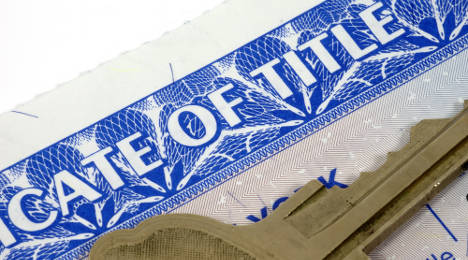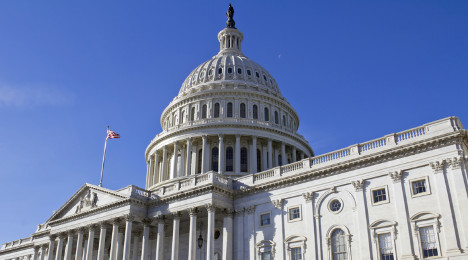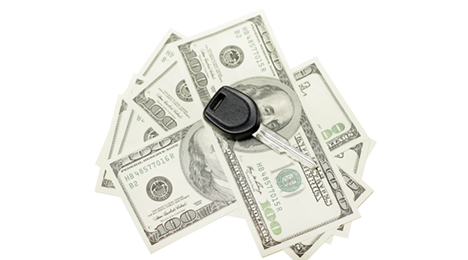Wolters Kluwer Financial Services recently announced the newest version of its AppOne indirect loan origination platform, designed specifically for automotive, marine, powersports and recreational vehicle dealers.
The company outlined the solution’s enhancements, including self-service capabilities for dealers to help facilitate with financial institutions, integrate third-party applications (such as DMS) and take credit applications securely online.
Brad Fleener, the company’s senior director and general manager of indirect lending believes such a tool helps maintain compliance.
“Increasing regulatory oversight on lenders has heightened the importance for franchise, independent and buy-here-pay-here dealerships to use accurate and compliant loan documents and processing workflows,” Fleener said. “With mistakes resulting in potential financial penalties for lenders and harm to the consumer, dealers need to ensure their loan documents meet regulatory and legal standards to avoid damaging their lender relationships.”
The new version of AppOne includes the following improvements listed by the company:
- Form management: Provides dealers the capability to easily create lender specific document sets to ensure current versions of the forms are delivered efficiently to the lender every time.
- Lender management: Allows dealers to view and manage their preferred lender lists on a single page, including AppOne network lenders, lenders participating in third party networks and lenders manually added to the platform.
- Third-party application integration: Enables dealers to easily manage the connectivity and transfer of data from dealer management systems, credit bureaus and warranty providers through single click configuration.
- Online credit application: Gives dealers the ability to offer an online credit application on their website and to securely collect consumer credit information directly into AppOne.
For more information on AppOne and its upgrades, click here.
In the latest installment of its annual Power 300 issue, our sister publication Auto Remarketing launched a new feature to spotlight just a few of the companies on the list. In a Q&A format, AR goes behind the scenes with some of the leading companies in the used-car space.
Featured today is Hudson Cook chairman Tom Hudson.
Auto Remarketing: What regulatory question have you received from dealer clients most often this year, and how have you responded?
Tom Hudson: Discretion in dealer participation ranks at or near the top of the list. We recommend that dealers consider using the NADA program to document variations from the dealer’s “standard” markup. Advertising and the sale of ancillary products would run a close second and third, and with respect to those two topics, we are stressing that dealers need to master the existing requirements, most of which have been around for decades.
None of these topics involve new laws or regulations (although arguably the dealer participation has the CFPB stretching existing law past the breaking point). Rather, the CFPB, the FTC and AGs are aggressively enforcing existing law.
AR: What off-the-radar development happened during the first half of 2015 that the industry should be discussing but isn’t?
TH: The CFPB’s enforcement actions indicate that it will challenge car pricing in the BHPH business. BHPH dealers are not prepared for that.
AR: How close is the entire industry to taking compliance as seriously as it should?
TH: Most of the larger players are shaping up. Most of the smaller players still act like it’s the Wild, Wild West.
I visited a small dealership today, and the dealer asked me, “What’s this red flags stuff, anyway?” Most smaller dealers don’t know what they don’t know, and that’s dangerous.
AR: Simply, how much more difficult is it to be a dealer nowadays than it was just 10 years ago?
TH: After I gave a talk to a group of dealers a couple of weeks ago, one of them asked angrily, “You sound like I need to be a lawyer to run my business.” I replied that he was in one of the most highly regulated businesses in the U.S., and that he either needed to be a lawyer or hire one.
The problem is especially acute for smaller dealers. A dealer selling and financing 30 cars a month has the same compliance burden, or nearly so, as a dealer selling 300 cars a month. The cost of compliance will drive consolidation in the business, and many who do not get bigger will be driven out of business.
Other features in this special section include:
4 questions with NextGear’s Brian Geitner
4 questions with NADA Used Car Guide's Larry Dixon
4 questions with Infiniti CPO manager Sam Liang
4 questions with Black Book’s Anil Goyal
4 questions with Autotrader president Jared Rowe
4 questions with Geoff Parker of ADESA Cincinnati-Dayton
As the Consumer Financial Protection Bureau made temporary adjustments to fill the role of its deputy director who resigned last week, a pair of Texas lawmakers introduced a proposal to eliminate the CFPB altogether.
With deputy director Steve Antonakes departing the agency at the end of July, stepping in to serve as the acting deputy director is Meredith Fuchs, who also relayed intentions to leave the CFPB.
Earlier this month, Fuchs announced her intention to step down as general counsel, but she will continue to serve as general counsel and acting deputy director until a permanent replacement is selected for each position.
Meanwhile, Antonakes also was the associate director for the division of supervision, enforcement, and fair lending. Taking on the role on an interim basis is David Bleicken, who is the deputy associate director for supervision, enforcement, and fair lending
“Steve has been an enormous asset to the bureau, and a great friend and colleague to me since the early days of the agency,” CFPB director Richard Cordray said. “His contributions to this agency have been extensive in his dual roles as deputy director and associate director of supervision, enforcement, and fair lending and he will be sorely missed.
Meredith’s experience and vision have helped build the bureau since before we opened our doors, and I could not be more pleased that she has agreed to take on the role of acting deputy director,” Cordray continued. “I am deeply grateful to Steve and Meredith for their contributions to the CFPB and the American public we serve.”
Fuchs joined the bureau in 2011 as principal deputy general counsel before serving as chief of staff to Cordray. Prior to joining the CFPB, she served as chief investigative counsel of the U.S. House Committee on Energy and Commerce.
Previously, Fuchs held positions as vice president and general counsel of the National Security Archive at George Washington University, a litigation partner in private practice, the Supreme Court assistance project fellow at the Public Citizen Litigation Group, and an officer on the D.C. Bar Board of Governors.
Bleicken came on board with the CFPB in June 2011 as counsel to Antonakes in his capacity as assistant director for large bank supervision.
Prior to that point, Bleicken was the deputy secretary of banking for non-depository institutions and consumer services at what is now known as the Pennsylvania Department of Banking and Securities.
Newest bill introduction
Meanwhile, if Sen. Ted Cruz and Rep. John Ratcliffe get their bill passed all the through Congress, the CFPB will be dissolved.
Both Cruz and Ratcliffe expressed their disdain for how the CFPB operates, prompting them to introduce this measure at the same time the bureau turned 4-years old.
“Don’t let the name fool you, the Consumer Financial Protection Bureau does little to protect consumers. The agency continues to grow in power and magnitude without any accountability to Congress and the people. The only way to stop this runaway agency is by eliminating it altogether,” Cruz said.
“The legislation that Rep. Ratcliffe and I are introducing today gives Congress the opportunity to free consumers and small businesses from the CFPB’s regulatory blockades and financial activism, which stunt economic growth,” Cruz continued.
“While there’s much more to do to scale back the harmful regulatory impositions of Dodd-Frank, this legislation takes a critical step in the right direction. So today let's celebrate the CFPB’s fourth and final anniversary,” Cruz went on to say.
Ratcliffe rattled off several points, too, where he believes the CFPB has done more harm than good.
“The CFPB's regulatory zeal has stripped American consumers and businesses of their freedom of choice and has limited their access to capital — all in the name of a ‘we-know-best’ attitude from Washington,” Ratcliffe said.
“It seems like every time I go home to Texas and spend time with people across our district, I hear stories about community banks having to choose between closing their doors or consolidating into larger institutions to handle the increase in compliance costs," he continued.
“I hear from businesses forced to spend more time on unnecessary regulatory compliance paperwork than helping serve their customers, and financial institutions that have stopped providing certain basic financial services out of fear of retaliation from the CFPB,” Ratcliffe went on to say.
“I'm grateful to be able to introduce this bill with 46 of my House colleagues in conjunction with Senator Cruz. The CFPB represents exactly what President Reagan warned of — a government smothering opportunity rather than fostering it. We must eliminate the CFPB,” Ratcliffe added.
F&I Express recently launched what’s being dubbed CompliPrice, a cloud-based tool aimed to help stores ensure profits on aftermarket insurance products are compliant with dealer and finance companies compliance policies, and potential guidelines from the Consumer Financial Protection Bureau.
The company highlighted that CompliPrice, when combined with F&I Express’ eContracting platform, is geared to provide F&I managers with built-in functionality to ensure contracts comply with CFPB policies.
“In today’s tightly regulated environment, automobile dealers and their F&I departments are under tighter scrutiny than ever,” F&I Express chief executive officer Brian Reed said. “CompliPrice provides an important tool to quickly determine the maximum profit margin on any contract and ensure that it meets CFPB criteria.”
F&I Express integrates a large network of aftermarket product vendors, making their product and pricing information easily accessible to dealership F&I departments.
With F&I Express eContracting and CompliPrice, Reed insisted dealers can tap into the vendor network to quickly and efficiently determine the maximum margin on any aftermarket product sold.
The company went on to mention that dealers can set their maximum margins based on a percentage or a flat dollar markup. They also can set their system to override the maximum margins, however an alert will be sent to the dealer compliance officer, or other designated dealer employee, for override reason documentation.
“Manually checking each contract for compliance would be a laborious, cumbersome and expensive process for any auto retailer,” Reed said. “But, not checking opens up the dealership to liability.
With CompliPrice, F&I managers can have peace of mind and still have a quick, customer friendly closing process,” he went on to say.
More information can be found at www.fandiexpress.com/compliprice.
TitleTec, a Solera company and provider of title and registration software for automotive dealers, joined with the National Independent Automobile Dealers Association as a national member benefit partner on Monday.
Officials highlighted TitleTec’s partnership with NIADA will help streamline the out-of-state titling process for NIADA's 16,000 members and the more than 38,000 licensed dealers in the U.S.
“With the immense growth in remote consumer-to-dealer retail transactions, we needed to secure best-in-class, high quality and innovative online vehicle title/registration resources for our member dealers as they expand their geographic marketplaces," NIADA senior vice president of member services Scott Lilja said.
“TitleTec brings the necessary tools, market expertise and state-of-the-art technology to meet and exceed our member needs in this area,” Lilja continued.
TitleTec Nationwide is a Web-based solution that can generate the fees, taxes and state forms for all 50 states, providing a streamlined workflow for dealership titling departments so they don't have to navigate the intricacies of 50 independent DMVs.
In the past, TitleTec acknowledged dealers have had to struggle with the complexities surrounding title and registration work for out-of-state customers, including having to manually track down the proper forms, fee structures and deadlines. As a result, out-of-state title and registration processes can negatively impact customer satisfaction index (CSI) scores.
TitleTec managing director Daniel Burgess insisted TitleTec Nationwide can save valuable time for dealership staff and allow dealers to offer customers the most efficient service possible.
“This solution was created because many of our electronic titling customers were seeking a way to ease the pain of the out-of-state titling process,” Burgess said.
“With TitleTec Nationwide, we’ve responded to that demand and provided a solution that allows dealership titling departments to serve out-of-state car buyers with speed and accuracy,” he went on to say.
TitleTec Nationwide is available to dealers in all 50 states.
For more information, visit www.titletec.com.
Perhaps Sen. Richard Shelby, chairman of the Senate Banking Committee, asked the question dealers nationwide would like to pose to Richard Cordray, director of the Consumer Financial Protection Bureau.
Shelby took the opportunity when the committee conducted a hearing this week as Cordray made his latest appearance in front of the Senate gathering and shared the CFPB’s semiannual report. The Alabama Republican phrased his question in the same vein raised by the three major dealership associations, which voiced concerns about the consent order released by the CFPB and Department of Justice involving American Honda Finance Corp.
Shelby asked that since dealers are “explicitly exempted from the CFPB’s jurisdiction, how can this be seen as anything other than a back-door effort to regulate the auto dealers, which were basically exempt from Dodd-Frank?”
Cordray replied with a response that might not please dealers and their associations.
“In terms of responsibility, we’ve been very careful to observe a line that was not necessarily an obvious or logical line that Congress drew, which was to say that the bureau has jurisdiction over auto lenders but does not have jurisdiction over auto dealers,” Cordray said. “That jurisdiction as I understand it has been given to the Federal Trade Commission.
“We feel that means the law has spoken clearly in terms of responsibility to address any sort of issue with regard to discrimination or other violations of the law by lenders, but not by dealers,” he continued. “That may be illogical, but that’s the line we have and have taken our responsibility seriously there.
“As I said, we have a partner in this work, which is the Department of Justice,” Cordray went on to say. “We work together to address these issues. I think that’s been appropriate, but I’m always willing to hear more from the members of this committee and members of Congress. We are simply looking to enforce the law and do it accurately and appropriately.”
Before touching on the “illogical” part of the CFPB’s jurisdiction, Cordray praised American Honda Finance for agreeing to the consent order, which includes the reduction in dealer discretion to mark-up the interest rate to only 1.25 percent above the buy rate for contracts with terms of 5 years or less, and 1 percent for auto loans with longer terms.
“We did resolve a matter with Honda. It’s to Honda’s credit. I would commend them,” Cordray said. “They have taken far-reaching steps to constrain the discretionary markup, which we think has led to discrimination for consumers and the Justice Department thinks has led to discrimination for consumers.
“It was industry leadership that Honda demonstrated and I commend them for that,” he continued.
The nearly 2 1/2-hour hearing that also delved into the mortgage and credit card markets retuned to vehicle financing when Sen. Tim Scott of South Carolina took his turn. The Republican first pointed out the significant auto presence in his state since South Carolina contains manufacturing plants for several foreign OEMs, including BMW and Mercedes-Benz. Scott also referenced the auto finance bulletin the CFPB released in 2013; a policy he called a “one-size-fit-all, cookie-cutter regulation on lenders and dealers.”
Scott went on to say that because of the consent order involving American Honda Finance, “it seems like your bureau is regulating heavily the relationship between lenders and dealers. I’m not as concerned about the dealers or the lenders. I’m really concerned about consumers … who will now perhaps pay a higher price for those vehicles because of the government’s involvement in trying to make things better.
“Director Cordray,” Scott continued, “eliminating the ability for lenders and dealers to compete for a customer’s business will mean that the customer ultimately pays a higher interest rate, how do we explain that back at home if the CFPB’s involvement effectively forces some South Carolinians to pay a higher interest rate on their car note and how does that provide great consumer protection?”
Cordray first replied by referencing the automotive footprint in his home state of Ohio, which boasts installations for General Motors, Fiat-Chrysler as well as Honda. Then he shared what Scott and other lawmakers can convey to their constituencies.
“The last thing I want is to do things that hamstring important markets like auto lending,” Cordray said. “If I do that, it would be to the detriment of my agency and the American public. So we’re very concerned about this.
“We have had the hottest auto market in the last several years than we’ve had in the history of this country,” he continued. “That’s at the same time the bureau was gathering its wings and coming into existence. I’m pleased about that because I believe consumers benefit when they have access to auto transportation.
“Probably in your area as it is in my, if you don’t have the ability to get around through a car or truck you’re really in a lot of trouble in your life,” Cordray went on to say. “Having said that we also believe strongly people should not be subject to higher prices or onerous terms based on their ethnic, racial or gender backgrounds. And the Justice Department feels strongly about that as well.”
Cordray closed his thought by returning to what the CFPB attempted to accomplish with the bulletin release more than two years ago.
“The bulletin was one that was a pretty straightforward restatement of law,” he said. “It wasn’t a change in the law. It simply stated that if you’re a lender and you have an automotive lending program, you’re subject to the Equal Credit Opportunity Act.
“That is an undeniable proposition and you need to think carefully about what your program is,” he added.
While much of the industry is somewhat gnashing its collective teeth over the consent agreement American Honda Finance Corp. reached with federal regulators, Arent Fox senior automotive counsel Rob Cohen used descriptors such as “silver lining” and “golden goose” when analyzing the ramifications of the captive’s move with the Consumer Financial Protection Bureau and Department of Justice.
Cohen explained in a message to SubPrime Auto Finance News that American Honda Finance could have leveraged findings from the Charles River Associates study orchestrated by the American Financial Services Association. Cohen pointed out that analysis showed dealer participation disparities among minority borrowers are based upon “deeply flawed” data.
So where does the “silver lining” and “golden goose” come into play? With this consent order, Cohen said the CFPB demonstrates a lack of understanding of the indirect financing model.
“By limiting the amount of dealer participation, the CFPB has neither eliminated discretionary pricing nor has it taken any action that will result in lower finance rates to consumers,” he said. “Under this consent order, AHFC is free to charge higher wholesale finance rates to dealers and still remain competitive with other auto finance companies that have no restrictions on their compensation models.
“What remains to be seen is whether AHFC will provide additional ‘non-discretionary’ compensation to make up for the reduced retail margin,” Cohen added.
According to regulators, Honda will reduce dealer discretion to mark-up the interest rate to only 1.25 percent above the buy rate for contracts with terms of 5 years or less, and 1 percent for auto loans with longer terms. Honda also has the option under the order to move to non-discretionary dealer compensation.
“The bureau did not assess penalties against Honda because of Honda’s responsible conduct, namely the proactive steps the company is taking that directly address the fair lending risk of discretionary pricing and compensation systems by substantially reducing or eliminating that discretion altogether,” said CFPB officials, which also ordered the captive to pay $24 million in restitution to affected borrowers.
Kelley Blue Book senior analyst Karl Brauer suspects the consent order will sharpen regulators’ focus even more.
“A decision like this will lead to closer scrutiny of the dealerships’ financing practices by Honda, though it’s difficult for Honda to monitor every finance deal at every one of its dealers,” Brauer said in a message to SubPrime Auto Finance News. “It’s unfortunate Honda has to pay the fine when the dealers are the primary entity in how these loans are structured.
“Honda’s choice was to pay the fine or fight the charges, and given the negative publicity a case like this will generate, they probably see the fine as the most efficient solution,” he continued.
Publicity is an area also mentioned by Edmunds.com president Seth Berkowitz, whose site works with about 500 Honda dealerships. Berkowitz explained long-term ramifications depend on which “narrative is on the ascendancy,” meaning will it be the one from the CFPB and DOJ or industry associations.
“There’s nobody in the United States that would be excited about unfair lending practices or could defend that in any way,” Berkowitz said during a phone interview this week. That’s on the one hand.
“But the other question is, is the type of CFPB imposed settlement going to have much broader impacts than the narrow effort to deal with unfair lending practices,” he continued. “The industry claim is that these caps are going to impact people’s ability to garner discounted financing. To the extent that narrative prevails, then I think people will look at this as perhaps the government ultimately impacting their ability to secure cheaper or better financing.
“It will be interesting over the coming weeks which narrative prevails because I think everyone is interested in cheap and fair financing,” Berkowitz went on to say.
No matter, Honda dealerships are going to be impact since their captive permitted stores to mark-up consumers’ interest rates as much as 2.25 percent for contracts with terms of five years or less, and 2 percent for contracts with longer terms.
“Dealers have increasingly leveraged F&I as a source of profit over the last few decades because of reduced margins on new-car pricing,” Brauer said.
“F&I is more important now than ever before in contributing to a dealership's bottom line, and given the growing length and size of car loans in today’s market, there’s an unprecedented amount of money flowing through these departments,” he went on to say.
And from Berkowitz’s view, don’t expect a parade of captives implementing changes unless regulators force the modifications.
“Stemming from the industry reactions, it would seem unlikely that the captive finance arms would voluntarily impose upon themselves what was worked through in the settlement with Honda,” Berkowitz said.
Brauer closed the discussion with one more thought.
“All finance companies have to follow equal lending laws or risk being investigated and fined,” he said. “Unfortunately, while most companies follow best practices for equal lending, there’s always a percentage trying to generate extra profit through unscrupulous policies.”
Two of the largest players in the GPS technology space now are under the same corporate umbrella.
Spireon, a portfolio company of Bertram Capital, on Wednesday announced the acquisition of privately held Inilex, another provider of GPS recovery software solutions. Inilex’s main product, Skylink, can enable dealers to significantly increase their financial and insurance revenue with high-value GPS-based add-on services.
As the automotive industry transforms in the connected car era, officials highlighted this acquisition enables Spireon to uniquely connect all major segments of the vehicle life cycle, ranging from franchised dealers to independent and buy-here, pay-here dealerships, fleets, finance companies, insurance companies and rental car fleets.
They added the acquisition expands Spireon’s strategy to offer rich services and business intelligence across any kind of vehicle.
As the market leader with 2.3 million connected vehicles, Spireon believes it is now more than four times the size of the next largest theft recovery provider, Lojack.
“The acquisition of Skylink expands Spireon reach into the new-car dealer segment, and positions us as a leader across the vehicle life cycle,” Spireon chief executive officer Marc Brungger said. “New-car dealers have strongly told us they need new ways to increase revenue by offering consumer applications that leverage the data coming from connected cars.”
Spireon emphasized that Skylink can leapfrog traditional theft recovery services by replacing legacy radio sets that have limited coverage with next-generation GPS applications that can be tracked with any internet connected device. Instead of relying on proprietary technology that only works with a small number of police vehicles, Skylink can offer ubiquitous coverage using national cellular networks.
And with the combination of Skylink’s dedicated 24/7 call recovery center that works directly with local law enforcement and cloud-based phone applications, officials insisted that vehicles can be recovered within minutes instead of waiting days for a dedicated police car to search manually for a radio signal.
“For new car dealers, Skylink offers value on multiple levels,” said Jeff Rachor, CEO of Berkshire Hathaway Automotive, the fourth-largest automotive retailer.
“Skylink’s vehicle inventory management system allows for greater operating efficiencies, and as an aftermarket accessory, Skylink is a high value product that appeals to customers,” Rachor continued.
Inilex is coming off of an award-winning year
Inilex was named a finalist in the prestigious Arizona Governor’s Celebration of Innovation award, in which companies are selected for propelling Arizona to a position of economic strength. Inilex was the only company in the automotive industry to be recognized. The finalists were chosen by a selection committee of experts including members from Avnet, Intel Corp., Honeywell Aerospace and Science Foundation Arizona.
In addition, Inilex was selected to the Inc. 5000 — its third year making the list of fastest growing private companies in the nation.
At No. 1056, Inilex posted an impressive 422-percent growth rate.
Both the Inc. 5000 and the Governor’s Celebration of Innovation awards come on the heels of Inilex’s position as one of the “Most Promising Companies in America” in 2014, according to Forbes.
Now Inilex is part of Spireon.
“We are excited to join the Spireon family,” Inilex CEO Michael Maledon said. “This transaction allows us to scale our sales and marketing efforts to reach more dealers nationwide.
Backed by world-class infrastructure, our customers gain the added assurance that Skylink will continue on our promise to deliver high value solutions and results,” Maledon went on to say.
Bertram Capital partner Jared Ruger added, “We are very excited to extend Spireon’s Internet of Things (IoT) platform with the addition of Inilex’s new-car dealer solutions.
“We see a tremendous opportunity to introduce additional connected car applications to Spireon’s installed base of 2.3 million active vehicle subscribers,” Ruger said.
Editor’s note: Look for a follow-up report stemming from Spireon hosting a conference call to discuss the acquisition in a future edition of SubPrime News Update.
Exactly two weeks before a consent order involving American Honda Finance Corp. came to light, documents the Consumer Financial Protection Bureau shared by anonymous sources generated online reports about the forthcoming regulatory developments.
Now, the National Automobile Dealers Association wants to know the entirety of an internal CFPB memo that sparked that initial report.
Earlier this week, NADA asked the CFPB to make public an agency memo that appears to “plainly undermine” the bureau's “long-standing claims” that it is not targeting dealers through enforcement actions. The request was made under the Freedom of Information Act (FOIA) and signed by NADA chief regulatory counsel Paul Metrey.
According to a June 30 article published by American Banker, three senior CFPB officials sent CFPB director Richard Cordray a memo outlining how a proposed settlement with American Honda Finance would further the agency's “goal” of “significant[ly] limiting dealer discretion.”
The report indicated Jeffrey Morrow, Jane Peterson and Rebecca Gelfond wrote in a June 16 memo to Cordray about the proposed Honda settlement and stating, “The significant limitation of dealer discretion, which in turn reduces fair lending risk, is one of the goals we have been seeking with respect to the indirect auto matters, and this settlement proposal attains that goal.”
Dealer discretion is the amount of a vehicle installment contract the dealer is able to discount at the retail level for a customer. Since this type of discounting begins and ends at the dealership, NADA insisted any targeting of dealer discretion is tantamount to regulating what actions a dealer is permitted or not permitted to take.
NADA officials reiterated the Wall Street Reform and Consumer Protection Act — better known as Dodd-Frank — specifically prohibits the CFPB from regulating dealers.
Yet NADA president Peter Welch contends the bureau's actions have caused many, including both Republican and Democratic members of Congress, to question whether the CFPB has attempted to skirt its jurisdictional boundary in an effort to regulate dealers.
"If true, the statements made by senior CFPB officials in this memo directly contradict repeated statements, including testimony before Congress, from director Cordray that he is aware and respectful of his Congressional mandate not to regulate dealers,” Welch said.
“Consumers benefit tremendously from dealer discounts, so they deserve to know if these discounts are in danger of being unjustly and unfairly eliminated by overzealous Washington regulators,” he added.
NADA added the memo, as well as proposed consent orders against Honda and two other captive finance sources, appear to have been leaked to American Banker, as only some of the documents referenced in the article are in the public domain. The consent order with Honda was released on Tuesday.
A copy of NADA's letter to the CFPB’s chief FOIA officer is available here.
In a previous message to SubPrime Auto Finance News, CFPB communication director Jen Howard offered this statement regarding the information obtained by American Banker.
“Our enforcement process is confidential and we take any breach of that confidentiality very seriously," Howard said. "We are referring this matter to the Office of the Inspector General for further investigation and will cooperate fully.”
The Consumer Financial Protection Bureau and Department of Justice just took a big bite out of the F&I income Honda dealerships can generate through the financing of vehicle installment contracts by their captive.
CFPB and DOJ officials said on Tuesday that they resolved an action with American Honda Finance Corp. they believe will put new measures in place to address discretionary auto loan pricing and compensation practices.
The agencies indicated Honda’s past practices resulted in thousands of African-American, Hispanic, and Asian and Pacific Islander borrowers paying higher interest rates than white borrowers for their installment contracts, without regard to their creditworthiness.
As part of the order, officials said Honda will change its pricing and compensation system to substantially reduce dealer discretion and minimize the risks of discrimination, and will pay $24 million in restitution to affected borrowers.
According to the consent order, Honda’s captive will limit dealer participation to 125 basis points for installment contracts with terms of 60 months or less. For contracts longer than 60 months, the cap is set at 100 basis points.
Officials maintained that Honda permitted dealers to mark-up consumers’ interest rates as much as 2.25 percent for contracts with terms of five years or less, and 2 percent for contracts with longer terms.
The agencies explained the enforcement action is the result of a joint CFPB and DOJ investigation that began in April 2013. The agencies investigated Honda’s indirect auto lending activities’ compliance with the Equal Credit Opportunity Act, which prohibits creditors from discriminating against loan applicants in credit transactions on the basis of characteristics such as race and national origin.
The investigation concluded that Honda’s policies:
• Resulted in minority borrowers paying higher dealer markups: Honda violated the Equal Credit Opportunity Act by charging African-American, Hispanic, and Asian and Pacific Islander borrowers higher dealer markups for their auto contracts than non-Hispanic white borrowers. These markups were without regard to the creditworthiness of the borrowers.
• Injured thousands of minority borrowers: Honda’s discriminatory pricing and compensation structure meant thousands of minority borrowers from January 2011 through July 14, 2015 paid, on average, from $150 to over $250 more for their auto loans.
Reaction from Honda
In a statement posted on its website, American Honda Finance officials said their consent agreement with federal agencies, “shows our commitment to work together to be part of the solution and to establish the path forward that best supports our Honda and Acura customers and dealers with clear and convenient financing options.
“AHFC strongly opposes any form of discrimination, and we expect our dealers to uphold this principle as well. We firmly believe that our lending practices have been fair and transparent,” they continued.
“AHFC has a difference of opinion with the CFPB and the DOJ regarding the methodology used to make determinations about lending practices, but we nonetheless share a fundamental agreement in the importance of fair lending,” the officials went on to say.
Honda Finance didn’t mention the specific figures regarding dealer participation that the CFPB and DOJ did in the consent order. Rather, officials said, “In cooperation with the CFPB and the DOJ, AHFC will be working closely with our Honda and Acura dealers in proactively adjusting our pricing programs to continue to give our customers the ability to choose the loan that is best for supporting their purchase of Honda and Acura products.
“As part of this new program, AHFC will announce later this year adjustments to our caps for dealers in setting the rate for retail installment contracts lower than the present level,” they continued.
“We will be implementing this change in combination with other adjustments and modifiers in a way that continues to support our Honda and Acura dealers' present business compensation with a full array of financing options,” captive officials added.
American Honda Finance also pointed out that as a result of this settlement, no civil penalties have been assessed.
Along with establishing a $24 million fund that will be used to compensate customers identified by the CFPB and the DOJ, the captive indicated it will continue to enhance our long-standing commitment to support financial literacy education and ensure that the future generation of customers is well informed about the process of financing vehicles.
More details of enforcement action
Officials reiterated the Dodd-Frank Wall Street Reform and Consumer Protection Act, and federal fair lending laws, authorize the CFPB and DOJ to take action against creditors engaging in discrimination.
The CFPB’s order was filed on Tuesday as an administrative action, and DOJ’s proposed order was filed in the U.S. District Court for the Central District of California.
The agencies contend the measures provided in the orders will help ensure that discrimination does not increase the cost of auto loans for consumers on the basis of race and national origin.
Under the CFPB order, Honda must:
• Substantially reduce or eliminate entirely dealer discretion: Honda will reduce dealer discretion to mark-up the interest rate to only 1.25 percent above the buy rate for contracts with terms of 5 years or less, and 1 percent for auto loans with longer terms. Honda also has the option under the order to move to non-discretionary dealer compensation.
“The bureau did not assess penalties against Honda because of Honda’s responsible conduct, namely the proactive steps the company is taking that directly address the fair lending risk of discretionary pricing and compensation systems by substantially reducing or eliminating that discretion altogether,” CFPB officials said.
• Pay $24 million in damages for consumer harm: Officials said Honda will pay $24 million to a settlement fund that will go to affected African-American, Hispanic, and Asian and Pacific Islander borrowers whose auto loans were financed by the captive between January 2011 and Tuesday.
• Administer and distribute funds to victims: Officials said Honda, through American Honda Motor Co., will contact consumers, distribute the funds and ensure that affected borrowers receive compensation. Honda will make reports to the bureau regarding this victim compensation activity.
“The CFPB is committed to creating a fair marketplace for all consumers, and other auto lenders should take note of today’s action,” CFPB director Richard Cordray said. “Honda’s proactive decision to move to a new pricing and compensation system demonstrates industry leadership and represents a significant step towards protecting consumers from discrimination.”
The head of DOJ’s Civil Rights Division, principal deputy assistant attorney general Vanita Gupta, also reacted to Tuesday’s development.
“We commend Honda for its leadership in agreeing to impose lower caps on discretionary markups and for its commitment to treating all of its customers fairly without regard to race or national origin,” Gupta said.
“We recognize that dealerships perform a valuable service in connecting customers with lenders and that they should be fairly compensated for that service,” Gupta continued. “We believe that Honda’s new compensation system balances fair compensation for dealers and fair lending for consumers.
“We hope that Honda’s leadership will spur the rest of the industry to constrain dealer markup to address discriminatory pricing,” Gupta went on to say.
In March 2013, the CFPB pointed out that it issued a bulletin explaining that it would hold indirect auto finance accountable for “unlawful discriminatory” pricing. Bureau officials reiterated the bulletin also made recommendations for how indirect auto finance companies could ensure that they were operating in compliance with fair lending laws.
Last September, the bureau also issued an edition of supervisory highlights that explained that the bureau’s supervisory experience suggests that significantly limiting discretionary pricing adjustments may reduce or effectively eliminate pricing disparities.
“Substantial limits on discretionary pricing like those imposed by today’s order can address the type of fair lending risk identified in the CFPB’s bulletin and supervisory highlights,” officials said.
Officials mentioned Tuesday’s action is part of a larger joint effort between the CFPB and DOJ to address discrimination in the indirect auto lending market. In December 2013, the CFPB and DOJ took an action against Ally Financial and Ally Bank that ordered Ally to pay $80 million in consumer restitution and an $18 million civil penalty.












